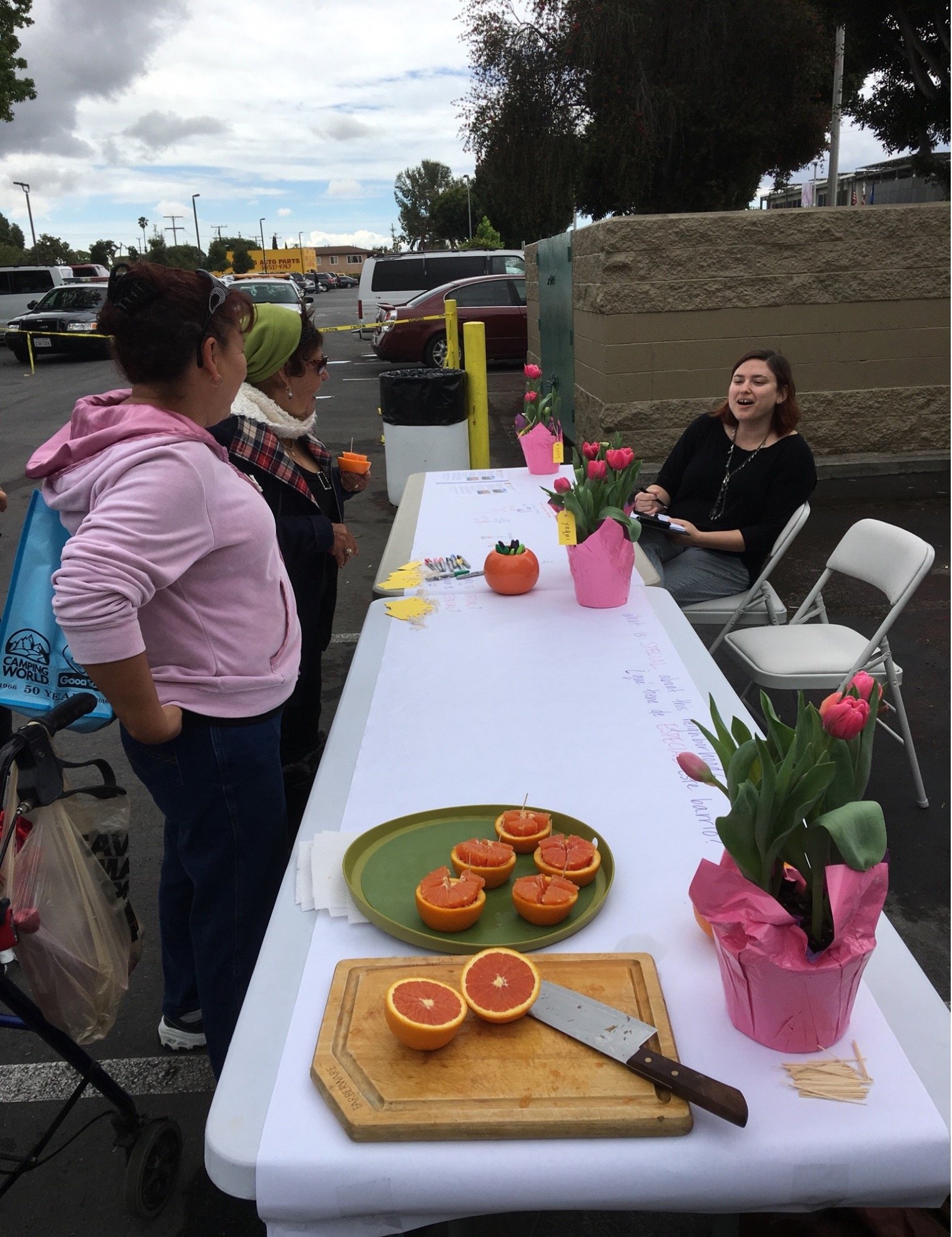I received my Ph.D. in Religion and Comparative Literature, with a certificate in Women’s, Gender, and Sexuality Studies from Emory University in 2013. I started my transition to applied research in 2014, serving as a performance auditor for the City of Atlanta. Then, as a Mellon/ACLS Public Fellow and research analyst at the Los Angeles County Department of Arts and Culture from 2015 to 2018, I discovered how my humanistic and anthropological research skills could be a particular asset to working at the intersection of arts and culture, civic structures, and local communities.
From 2018 to 2022, I worked with Metris Arts Consulting, first as an employee, then as an affiliate consultant. With Metris, I led multiple research and evaluation projects in arts and culture and community development, which you can explore here.
I have lived in New York City, Paris, Jersey City, Boston, Atlanta, and Los Angeles, but I was born and raised in southern Lenapehoking/Philadelphia where I am based again now. Growing up in West Philly, North Philly, Kensington, and Olney and watching these neighborhoods change has made me a student of how layers of social, cultural, political, and ecological systems shape our places, often with injustice and exploitation as their goals. In my consulting practice, I am always looking for opportunities to help people to shape the places where they live to promote flourishing and interdependence. Off hours, you will find me foraging for mulberries in vacant lots or collecting crabapples on the Benjamin Franklin Parkway.
Photo Credit: Sara Daleiden Consulting
Values & Approach
-
Racialized capitalism and settler colonialism are the interconnected oppressive systems that drive many of the ways we experience our world today. We are also interconnected within social, cultural, and ecological systems that we need for our flourishing. As a result, I am increasingly finding that systems thinking is necessary to understand our interventions and leverage points within these systems, especially when working in a neighborhood context. When talking about neighborhoods, the framework of “place” can be a helpful of talking about the interconnected systems that make up a place, including our relationship to land and the natural world, the social structures of a community, as well as the built environment.
-
Participatory methods are at the core of my approach for many of the projects I work on. I believe that multiple perspectives give us more complete knowledge of any given situation or topic. My perspective is certainly limited by my positionality as a white, educated, middle class person and I can never be the “expert” on someone else’s experience.
One of the tenets of systems thinking for liberation is that those most negatively impacted by oppressive systems have the most insight into how those systems function. It’s harder to see how the system may be designed for your benefit when it seamlessly produces that benefit for you. Participatory methods can make sure that we have all the necessary viewpoints on the system. When participatory methods also promote co-ownership and decision-making by those most impacted, they can also start to counteract some of the hierarchies within oppressive systems.
-
At the core of my work is a commitment supporting reflective practices that are aimed at changing the oppressive status quo. When we unthinkingly do things the way we always have done, we can unwittingly reproduce the structures and practices that reinforce the status quo.
But there is also much to be learned by doing and practitioners have so much knowledge that is built up “in their bones” about how to do the work effectively. As a result, my approach is rooted in being a facilitator to create space and structures for bringing that knowledge to the surface so that we can critically reflect on it together. Then, we can apply our learnings and continue the cycle of reflective action. Ultimately, I am committed to sharing the knowledge we build so that we can be more strategic in our work as a community of practitioners.
-
No, arts and cultural strategies are not neutral and have been tools of upholding the oppressive structures we live under. But I also believe that these strategies can help us connect to our humanity and embodiedness, our interconnectedness and capacity for relationality, and our imagination of a world beyond the racialized capitalist and settler colonial society we live in. Creative and cultural strategies can give us access to deeper ways of knowing and sensemaking that we need in order to build otherwise ways being with each other. Creative and cultural strategies that acknowledge our current systems and are driven by people who are marginalized by the current systems can be subversive and provide rootedness that helps us get free.
